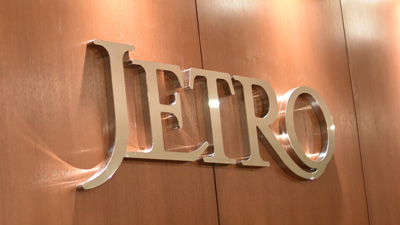Beckhoff Automation K.K.
Beckhoff Automation K.K.; a Japanese subsidiary of Beckhoff Automation GmbH & Co. KG, a global manufacturer of industrial control equipment (FA) in Germany; opened their second Japanese office in Nagoya in September 2017. “EtherCAT,” an open protocol for industrial networks invented by Beckhoff, has drawn a great deal of attention as it is increasingly adopted by companies worldwide, having even been selected by Toyota Motor Corporation for use in its factories worldwide. We interviewed Mr. Toshimitsu Kawano, Managing Director of the Japanese Beckhoff subsidiary about the company and its future outlook.

- Establishment
- 2011/03
- Destination
- Tokyo / Aichi
- ICT
- Other
-
Germany
Update : 2018/01
Beckhoff Automation GmbH & Co. KG (Beckhoff), a global company in Germany established in 1980, provides industrial control equipment for “factory automation” (FA), including open automation control systems based on PC-based control technology. It has 14 branch offices in Germany, 35 foreign subsidiaries and about 3,400 employees all over the world, expanding into more than 75 countries.
Since 2011, the German government has taken the initiative in an industry-government-academia industrial development project for manufacturers called “Industry 4.0” (“the Fourth Industrial Revolution”). The aim of the project is to have goods and services inside and outside factories linked together through ICT technology, to automate production and distribution processes and substantially enhance virtualization through digitalization, as well as to minimize costs and improve productivity. Beckhoff is one of the companies playing a key role in promoting “Industry 4.0” in Germany.
Beckhoff’s strength: An open protocol ”EtherCAT”
The market of “EtherCAT,” an industrial network protocol invented by Beckhoff in 2003, has now rapidly expanded all over the world. EtherCAT is a fieldbus system (communication protocol) that connects a master device to a slave device within control equipment installed at a factory. Specifications of EtherCAT were made open globally by the EtherCAT Technology Group (ETG), which was established after the invention, and internationally standardized by organizations such as the ISO and IEC. Today, everyone can use this technology free of charge under a license contract. The number of ETG member companies has continued to increase since its establishment and, in 2017, reached 4,500, including 500 or more Japanese companies. Toyota Motor’s announcement of the adoption of EtherCAT for its factories around the world in April 2016 in particular contributed to the rapid increase of name recognition in Japan.
Toshimitsu Kawano, Managing Director of Beckhoff Automation K.K. (Beckhoff Japan), explained that “EtherCAT has three strengths: ‘the highest speed in the industry,’ ‘fewer cables’ and ‘openness.’” Among these strengths, each of which surpasses the competitors, Mr. Kawano places special emphasis on “openness.” “There are various types of communication protocols between industrial devices and factories are always faced with the problem of compatibility. The invention of EtherCAT allowed factories to freely select and use devices necessary for the improvement and refinement of manufacturing systems from products provided by a wide range of manufacturers. In the traditional industrial equipment sector, it was normal that a factory was locked in by a single protocol. However, EtherCAT caused a revolution by making a communication protocol with outstanding features open to all. Behind this bold business decision was the confidence that customers would choose Beckhoff’s equipment due the company’s advanced capabilities in product development as well.”

Mr. Okura (right) from Toyota Motor, which decided to adopt EtherCAT for its factories around the world, shaking hands with Martin Rostan, Chairman of ETG (left)
Background to investing in Japan: one of the biggest FA markets in the world
Much attention has been paid to “Industry 4.0” in Japan as well, given its status as a great manufacturing power. In order to further improve productivity and create greater value in Japanese industry, the government has taken the helm in absorbing knowhow with enthusiasm, while companies are putting initiatives into practice at factories. The first site for Beckhoff Japan was established in Yokohama in 2011. Mr. Kawano explained the reason for the company’s incorporation in Japan, saying, “As the Japanese FA market is one of the biggest in the world, it was an obvious choice to establish a presence here. Also, as a global company, accruing a portfolio in Japan was essential for us to develop a world-class brand. However, the FA market in Japan was considered to have the highest barriers toward entering in the world. Thus, we spent a long time for preparation, from planning to implementation.”
“We didn’t have such a large number direct customers in the country at the time our branch office was established, but there was a resounding call for us to provide support closer to Japan. We wanted to answer that call faithfully, and I remember how happy we were to finally be able to do so. The Japanese branch office was established around the same time as the Great East Japan Earthquake, and immediately we received many requests for repairing and replacing broken parts by existing customers who were affected by the disaster. The Japanese subsidiary began its business by sincerely responding to such requests one by one,” recalled Mr. Kawano.
Toyota Motor’s adoption of EtherCAT: Background to advancement in the Japanese market
Even a global company such as Beckhoff Japan struggled to earn the trust of new customers when it started business in Japan. Mr. Kawano explained, “As the company’s technology is so innovative, we were often greeted with skepticism about whether it could actually perform as promised.” As he steadily worked to make sales, the name recognition of the company increased thanks to media attention on him as a “missionary for Industry 4.0” and more Japanese companies asked about collaboration over time. “One of the interesting aspects of the Japanese manufacturing industry is that there are many companies which, despite not being large in scale, are energetic and innovative. Working to spread ‘smart factory’ systems utilizing ICT and AI together with the presidents of companies who saw eye to eye with our vision, we began succeeding, slowly but surely. Over time we attracted more attention from the state and succeeded in winning a grant from the Ministry of Economy, Trade and Industry. Our efforts were reported by a German TV station. As we began succeeding in more cutting-edge projects, our activities themselves became the source of information. This led to a cycle in which we got more collaborators, started new efforts with them, and these new efforts generated new projects.”
For the company that built its record step by step, a big turning point was Toyota Motor’s adoption of EtherCAT for all of its factories. “Since Toyota’s decision was made public, the whole game changed dramatically. As Japanese customers demand very high quality and verify a technology from every angle, it is difficult and takes a long time to have a new product recognized by them. However, once a product is recognized, you can build great trust with them, which makes business run smoother. This is another characteristic of the Japanese market, and the recognition from one of the largest companies in Japan enabled us to earn immeasurable credibility,” Mr. Kawano explained.

Toshimitsu Kawano, Managing Director, Beckhoff Automation K.K.
Future outlook: Infinite opportunities in the Japanese market
Beckhoff Japan followed up on its headquarters in Yokohama with an office in Nagoya. Regarding its future outlook, Mr. Kawano stated, “We would like to cover all of Japan in the future. Instead of concentrating on one central location, we intend to open offices consisting of dozens of employees in areas where there are needs and have each office independently provide operational and technological support to customers. We want to create new value with many unique and wonderful companies across the country by utilizing technologies such as ICT. I think that there are infinite opportunities in the Japanese manufacturing industry.”
JETRO’s support
For the establishment of a Japanese subsidiary of Beckhoff in Yokohama and a second office in Nagoya, JETRO’s Invest Japan Business Support Center (IBSC) provided the company with support such as providing a temporary office space, assisting the company in going through the procedures for local incorporation, searching for office locations and human resources, providing information on incentives and the market and working together to conduct PR activities. In regard to this support, Mr. Kawano says, “We have been greatly assisted by JETRO for a long time in various ways, from the advancement into Japan to opening an additional office. As a newly-established subsidiary of a foreign company, we faced difficulties even in finding an office to rent. So, it was a tremendous help having JETRO lend a temporary office space and introduce real estate companies to find office locations to us. When we opened the Nagoya office, JETRO asked leading local newspapers to attend a joint press conference, which boosted our credibility in the eyes of external parties. We could never have accomplished this on our own. We hope to be able to continue relying on JETRO’s support in various ways as we expand our business in the future.”
(September 2017 interview)
Company history
- 1980
-
Establishment of Beckhoff Automation GmbH & Co. KG in Germany
- 2003
-
Release of EtherCAT
- March 2011
-
Establishment of Japanese subsidiary Beckhoff Automation K.K. in Yokohama, Kanagawa
- April 2016
-
Announcement of adoption of EtherCAT at all Toyota Motor factories
- September 2017
-
Opening of an office in Nagoya
Beckhoff Automation K.K.
- Establishment
-
March 2011
- Business
-
Development, manufacturing and sales of industrial automation control system equipment
- Parent Company
-
Beckhoff Automation GmbH & Co. KG (Germany)
- Address
-
Nisseki Yokohama Building 18th Floor, 1-1-8 Sakuragicho, Naka-ku, Yokohama, Kanagawa 231-0062
- URL
JETRO’s support
- Provision of temporary office (IBSC)
- Support for corporate establishment procedures
- Introduction to service providers (real estate agency, staffing agency)
- Provision of information on incentives
- Cooperation in public relations activities
Related Industry
Regional Information
Explore More
-

Success Stories
Success Stories are based on interviews conducted with foreign companies and foreign-affiliated companies that have successfully come into the Japanese market.
-

JETRO’s Support
We provide consistent one-stop service for establishing a base or expanding business in Japan.
-

Setting up Business
You can find information on overall and detailed steps, cost estimation, an overview of the laws, regulations and procedures related to setting up business, and more.
Contact Us
Investing in and collaborating with Japan
We will do our very best to support your business expansion into and within Japan as well as business collaboration with Japanese companies. Please feel free to contact us via the form below for any inquiries.
Inquiry FormJETRO Worldwide
Our network covers over 50 countries worldwide. You can contact us at one of our local offices near you for consultation.
Worldwide Offices




























